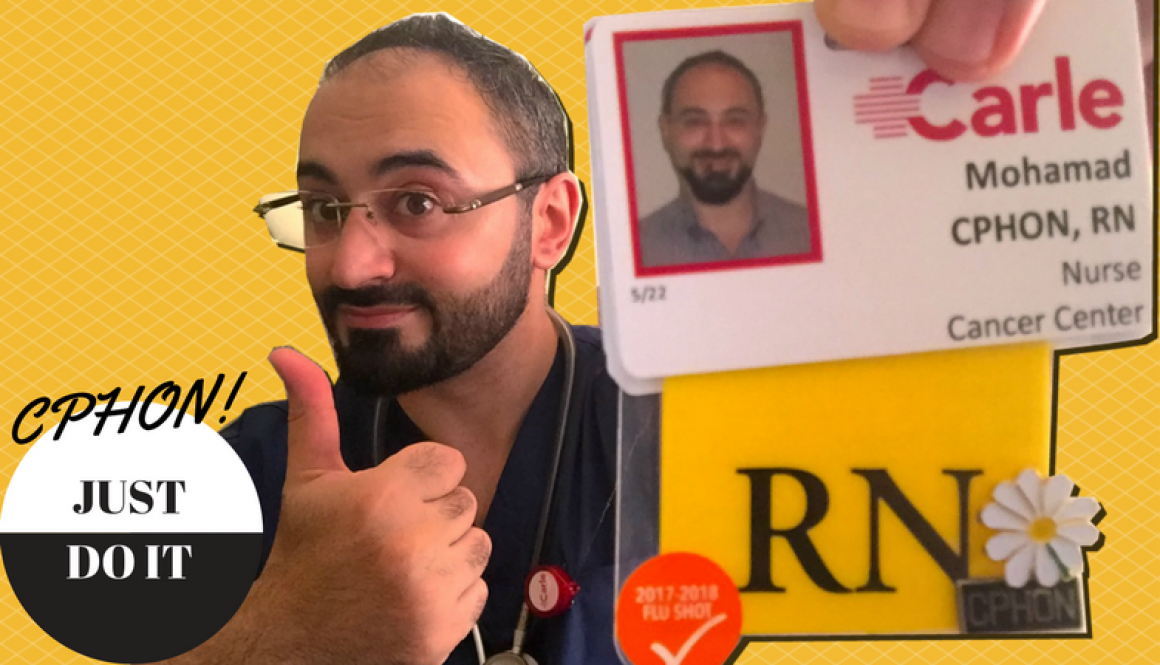
Nursing Specialty Certification! WHY?
|by Mohamad Younes, RN, BSN, CPHON®
My name is Mohamad Younes & I am from Lebanon.
It was back in 2010 when I first heard of specialty certification. After I graduated from nursing school, I worked in critical care. After a couple of years I joined a new job at a Children Cancer Center of Lebanon at a big MAGNET facility, the American University of Beirut Medical Center.
During my orientation program, the educator of the pediatric hematology oncology department spoke a little bit about the specialty certification process, and what does it mean to be certified!
From her one-hour presentation, only two things stuck in my mind.
First, she said that certified nurses are equipped with the highest knowledge to care for their patients, and they are definitely a reference to all the nurses on the unit.
Second, she is the one and only nurse who has the pediatric hematology oncology nurse certification in Lebanon, and that blew my mind. At that time, there were only around 700 CPHONs worldwide.
Bear in mind I have zero hours of experience in pediatric Hematology Oncology but the first thing my mind start analyzing was, how can I get there? How can I be a Certified Pediatric Hematology Oncology Nurse? Instantly I had my goals laid out, I wanted to be a CPHON after I get my 1000 hours in oncology, and I want to be the second CPHON in Lebanon.
If you know anything about me, you would know that I have a passion to help others, I like to be a resource in my profession, a leader, an advocate for my patients, and selfishly I like to have attention around me.
Long story short, I was introduced to the ONCC & the ONS website, there I started learning more and more about oncology in general and pediatric Hematology Oncology in specific.
Before I had the chance to get my 1000 hours in oncology, I moved to Saudi Arabia to another big MAGNET facility, King Faisal Specialty Hospital & Research Center. I attended my first monthly unit meeting, the education coordinator of our department was presenting the certification application process and the value a specialty certification brings to the nurse, to the patient, and to the employer.
That meeting burst that fire again inside of me and I felt the urge to get my hours in oncology and get the chance to sit for the CPHON exam.
All the nurses on the unit showed interest to apply for the exam, but when it came down to it, only my clinical instructor and I applied that November of 2011. In a way, I was happy about it, because the attention will be distributed on two people only. On the other hand, I was not happy because there wasn’t a group-study in place to help each other breakdown the blueprint of the exam, and to encourage and motivate each other through out this challenge.
My clinical instructor and I had high self-esteem and underestimated the test and sure enough, we FAILED IT. I came out from the test devastated, not only because I failed to accomplish my goals, but also because I knew that I don’t have what it takes, I don’t have the knowledge to be the best advocate for my patients population.
For the following year, CPHON became an obsession. I broke down the blueprint of the exam right after I failed it; I wrote down a plan and a study strategy over three months as well. The following year no one applied to the test but me, I think the reason being is that everyone thought it’s hard to accomplish since our clinical instructor failed the test, and it’s a waste of money since the hospital will not reimburse you for failed attempts.
Yet, I was determined! Three months out, I started my preparation and kid you not, it was hard, emotional, and frustrating at times, because I was the only one going through that. I knew I was doing the right thing not just for the patients and myself, but also for my colleagues. I wanted to show them that this is attainable and it should be the standard that they must look up to.
Woohoo!
I attained my goal and got my CPHON in November of 2012, I was the 4th CPHON in Lebanon and there was around 1000 CPHONs around the world.
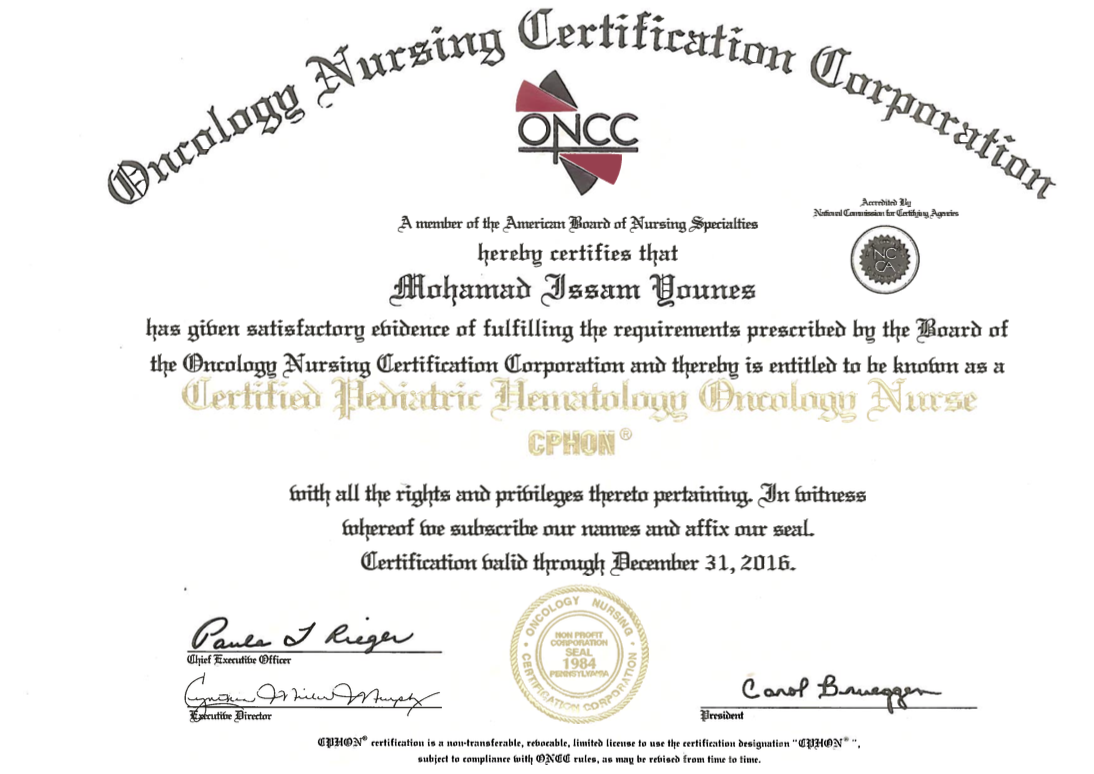
Certified Pediatric Hematology Oncology Nurse CPHON® 2012
Nursing Specialty Certification! WHY?
My certification gave me a lot of confidence in my nursing practice. I felt I am able to pick up things in my practice that I couldn’t pick up before. Meaning, I had more knowledge to be proactive, work on signs and symptom management, oncology emergencies, long-term side effects, psychology of my patient’s and their family and much more. Not only my certification gave my patients more confidence in me, but also the multi-disciplinary team built more faith and trust in my practice.
My certification got me to places I never thought I would be able to go to. I won the International Nurse Scholarship award by APHON in 2013, and that was my first time to visit the United States.
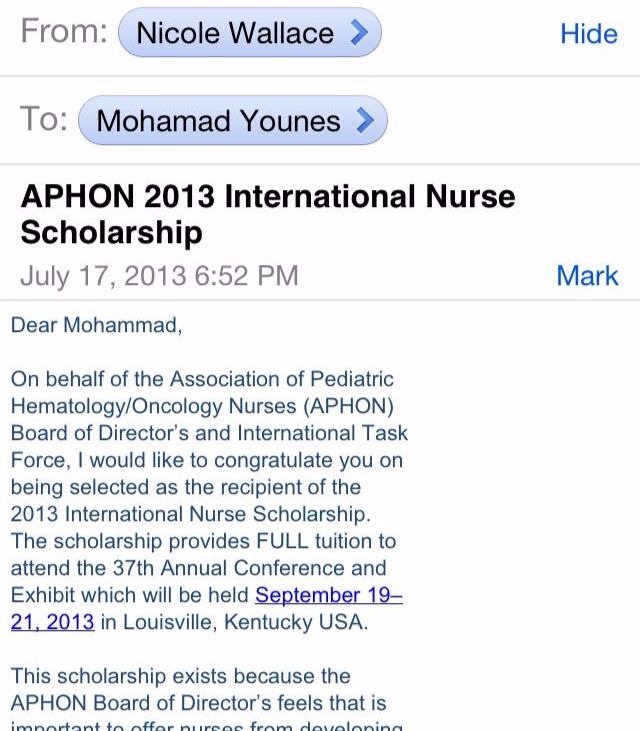
Email announcing me as the APHON International Nurse Scholarship Winner

Mohamad Younes (left), APHON Secretary Christina Baggolt
I got a promotion at my workplace, and I was sponsored to the 2013 Magnet Conference in Orlando.
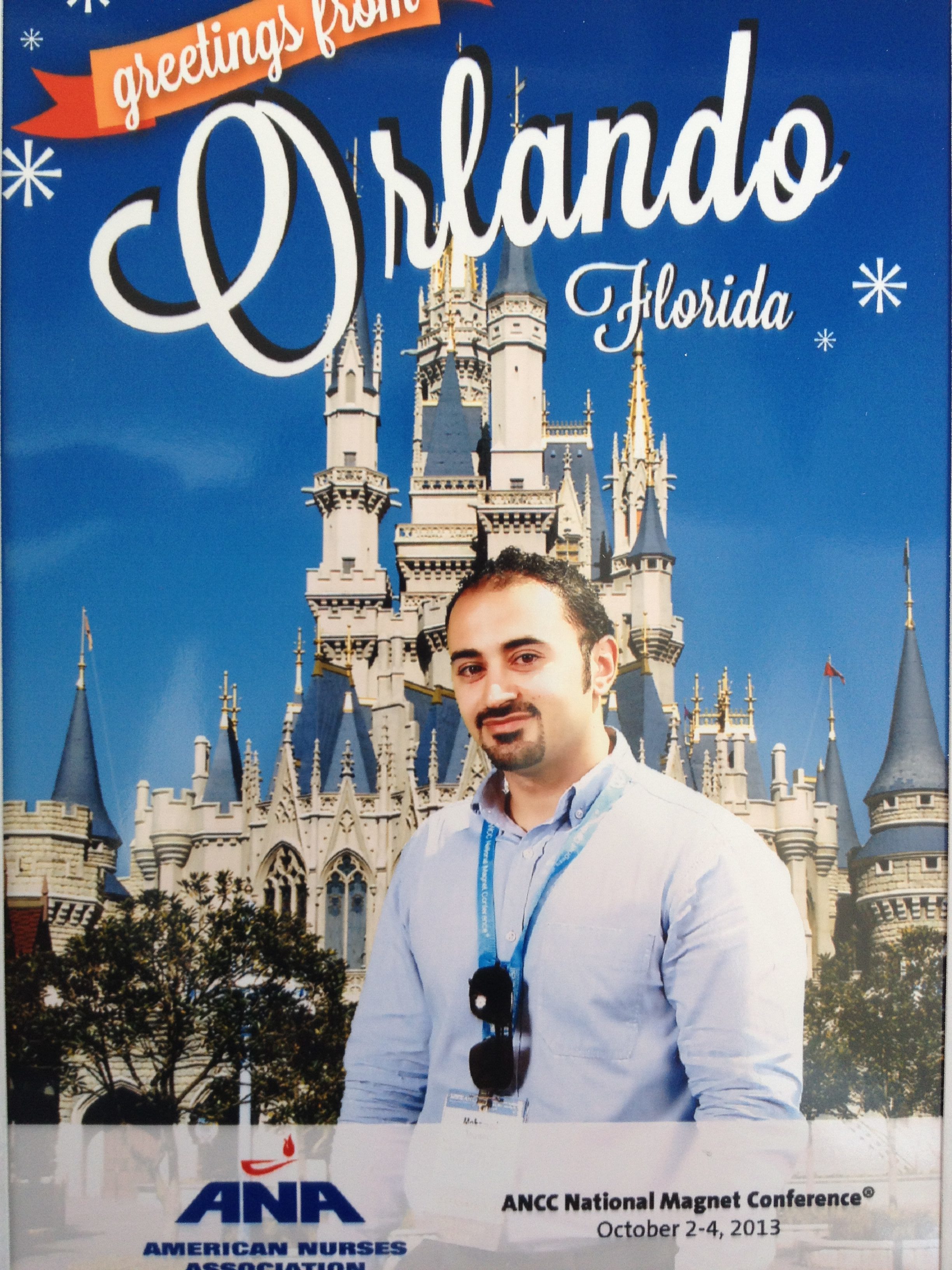
Magnet Conference 2013
I was also accepted as a member in the editorial board of the ONCC Certification News Newsletter. I was never declined for a job position I apply to ever since I got my certification, because every employer I applied for valued specialty certification.
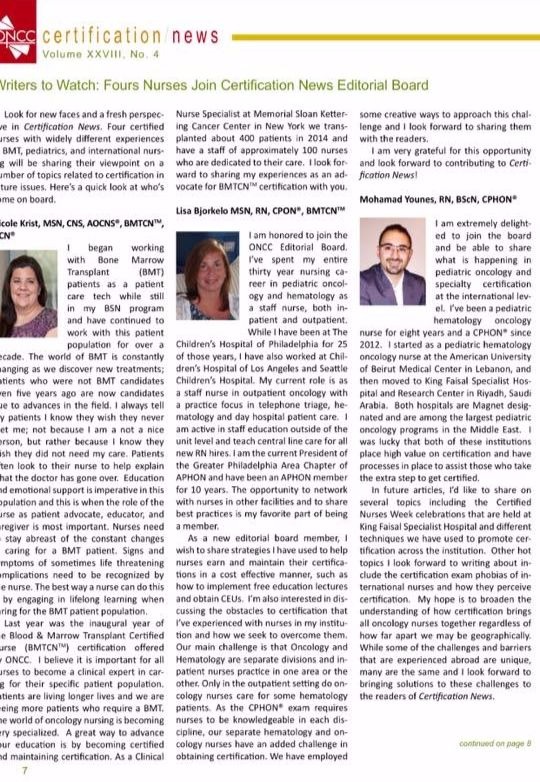
I got re-certified in 2016; the recertification application process was smooth, clear, and refreshed my knowledge.
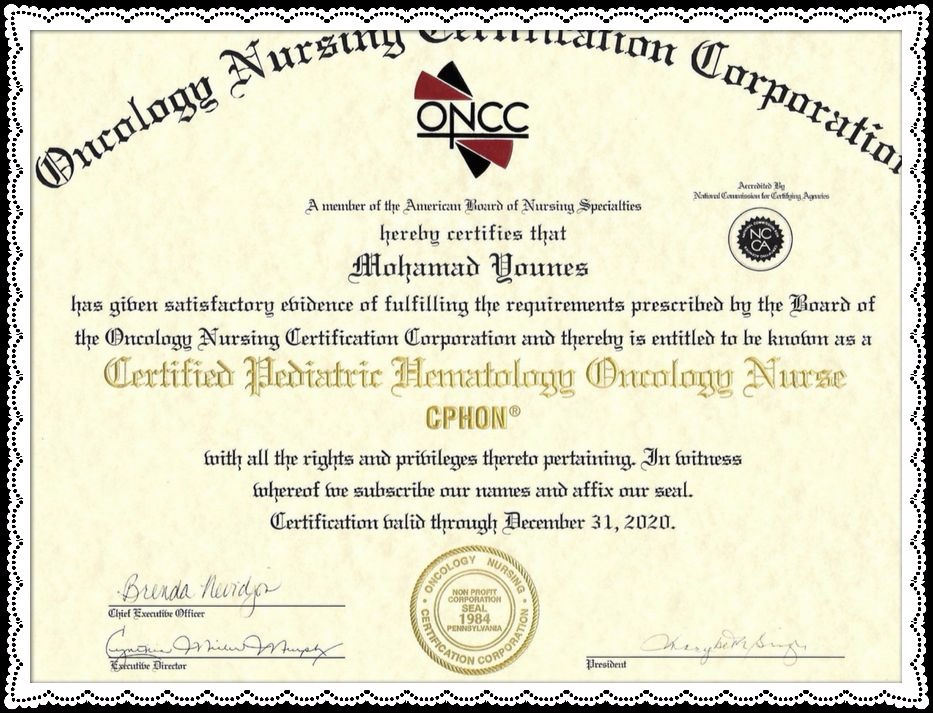
Recertification | Certified Pediatric Hematology Oncology Nurse CPHON® 2016
It just came to my attention that there are only 88 CPHON/CPONs outside the United States of America (49 being from Canada), if you do the math, then there are only 39 of them distributed to the rest of the world. I believe back in Lebanon, we have at least six or seven CPHONs, but I bet that you might be the first in your country.
That really encourages me to do more to advocates for Pediatric Hematology Oncology nurses to pursue their certification because trust me, it will not only change the path of your career, it will change your whole world. Getting your certification is totally worth the effort, the money, and the time you invest in it.
I hate to use NIKE’s Slogan, but…
JUST DO IT!
If you are interested in my 10 Tips that I have used in my 3-month study-strategy to attain my CPHON status. Click the link below
My 10 Tips to Pass CPHON
Submit a comment down below, share your thoughts
|by Mohamad Younes, RN, BSN, CPHON®